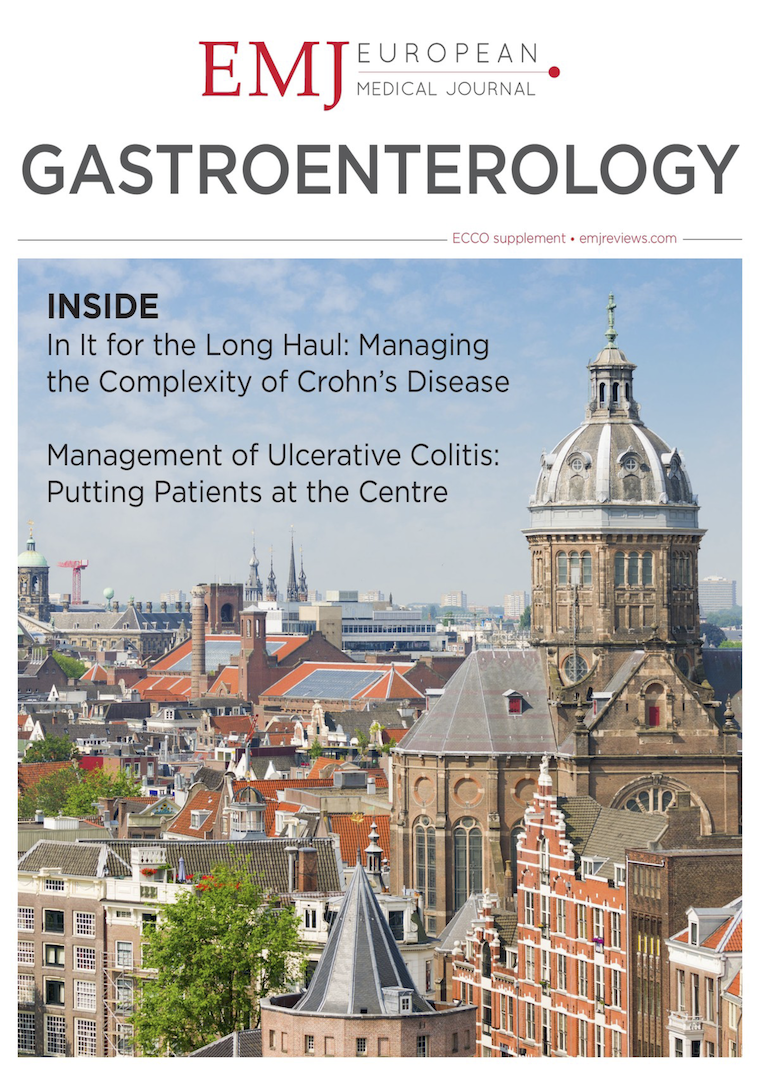The challenges of, and opportunities for optimal long-term management of Crohn’s disease (CD) and realworld experience of managing CD and its application in clinical practice were discussed at this symposium. CD is a complex disease, which requires effective treatment options to improve the quality of life for patients, both in terms of intestinal and extraintestinal manifestations (EIMs). Increased gut permeability of luminal antigens may play a primary role in the pathogenesis of CD, leading to dysregulation of the host’s immune response, and resulting in increased levels of tumour necrosis factor (TNF)-α and interferon (IFN)-γ in the inflamed mucosa of patients. Appropriate management goals need to be established by the physician and patient together. Anti-TNF therapy is not suitable for all patients, and a significant proportion of patients will be primary non-responders. Safety must also be considered as part of a patient-tailored assessment. Vedolizumab is a gut-selective antibody to α4β7 integrin for the treatment of ulcerative colitis (UC) and CD. An integrated Phase II and III safety analysis showed that vedolizumab exposure was not associated with increased risk of any infection or serious infection, or any cases of progressive multifocal leukoencephalopathy (PML), a rare and usually fatal viral disease characterised by progressive damage of the white matter of the brain at multiple locations. Data from the GEMINI trials with vedolizumab showed it to be effective versus placebo, in terms of eliciting both initial and sustained responses, and inducing remission in CD. The real-world studies with vedolizumab in >800 CD patients, most of whom failed ≥1 anti-TNF therapy, confirmed the efficacy and safety reported in clinical trials. Up to 30% of CD patients are receiving vedolizumab as a first biologic in the real-world setting.
Latest articles
All articles



We’ve noticed you’re accessing
from North/South America.
from North/South America.

